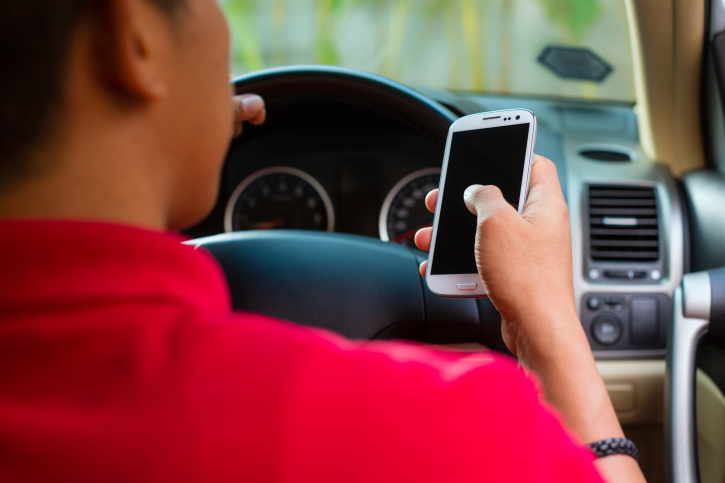Despite it having been an offence since December 2003 to use a mobile ‘phone whilst driving, many motorists have persisted in ignoring warnings and penalties and have continued to use a mobile as they drive. As a result the Government has issued plans to increase standard penalties from the current three points and a £100 fine to a £300 fine and six penalty points. The new penalties will be introduced in 2017
Prime Minister Theresa May has expressed her view that using a mobile whilst driving should be as unacceptable as drink driving.
What the Law Says
Current law is quite clear that it is an offence to use a hand held mobile whilst driving, or riding a motorcycle, whether it is to make of receive a call, text, or for any other use. The current fixed penalty is three penalty points added to the offender’s driving license and a £100 fine. In some areas those convicted have the opportunity to undertake a remedial training course in lieu of penalty points. When the new legislation comes into force there will be no option to undertake any kind of course, and the set penalties will be stiffly administered.
The law regarding penalty points means that if six are accrued during the first two years of a driving license having been issued, then the license is automatically revoked. This will clearly impact upon young drivers if caught using a mobile whilst driving once the new laws are in force.
Drivers who are seen – and that is all that is necessary – to be using a mobile whilst driving will be issued with the current standard fixed penalty. If a driver refuses to accept this they will be summonsed to appear I court where they will almost certainly receive a much greater fine of up to £1,000 (£2,500 if the vehicle is a goods vehicle or bus) and possibly disqualification from driving.
If a driver is involved in a crash whilst using a mobile they could be liable for prosecution for careless or even dangerous driving. In the case of someone being killed in such an accident they would be prosecuted for causing death by such driving.
Employers may also be liable to prosecution if they permit an employee to use a mobile whilst driving, or are found to have caused an employee to do so.
Under the new laws anyone who is guilty of the offence twice in three years will automatically have to appear in court and will face a fine of up to £1,000 and a driving ban.
The same laws do not apply to hands free phones, although a driver can still be prosecuted if Police suspect their driving has been affected by using the phone. Basically, use of a mobile whilst driving is seen as a distraction, whether held in the hand or hands free.
What Statistics Tell Us
The results of an RAC survey, published in September 2016, detail a shocking 31% of the survey’s respondents admitting to using a mobile whilst driving. This is an increase from 8% of drivers admitting the same in 2014. Of the 31% in the 2016 survey, 19% admitted they used their phones whilst driving for texting and using social media.
Most disturbingly the Department of Transport has statistics that show that in 2015 22 people lost their lives due to accidents caused by drivers being distracted by using a mobile phone.
According to the Royal Society for the Prevention of Accidents (RoSPA) those who drive whilst using a mobile phone – whether hands free or not – are less aware of what is happening around them, are more likely to fail to see road signs, fail to observe lane changes and hold a steady speed, more likely to be guilty of ‘tailgating’, are more stressed, and react slower than when not using a phone. They are also four times more likely to crash.
Why Do People Do It?
The laws regarding using a mobile while driving are very clear. It is very obvious to anyone that looking at a mobile phone means attention is taken away from the road and that risks are therefore increased. So why do people continue to do it?
Mobile phones have become such an integral part of most people’s lives, their multi-purpose nature making them almost indispensable to many. Useful functions such as satellite navigation, radio and music files have all become a major part of a smart phone’s usefulness. Taken into the driving environment that usefulness can prove fatal.

